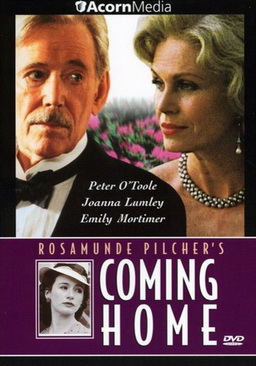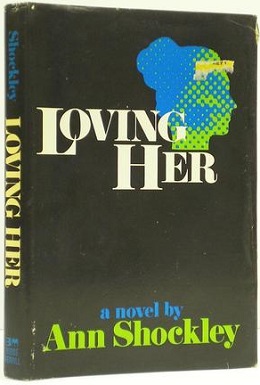
The Pursuit of Love is a novel by Nancy Mitford, first published in 1945. It is the first in a trilogy about an upper-class English family in the interwar period focusing on the romantic life of Linda Radlett, as narrated by her cousin, Fanny Logan. Although a comedy, the story has tragic overtones.

Ann Petry was an American writer of novels, short stories, children's books and journalism. Her 1946 debut novel The Street became the first novel by an African-American woman to sell more than a million copies.
How I Learned to Drive is a play written by American playwright Paula Vogel. The play premiered on March 16, 1997, Off-Broadway at the Vineyard Theatre. Vogel received the 1998 Pulitzer Prize for Drama for the work. It was written and developed at the Perseverance Theatre in Juneau, Alaska, with Molly Smith as artistic director.

Emma Donoghue is an Irish Canadian novelist, screenwriter, playwright and literary historian. Her 2010 novel Room was a finalist for the Booker Prize and an international best-seller. Donoghue's 1995 novel Hood won the Stonewall Book Award and Slammerkin (2000) won the Ferro-Grumley Award for Lesbian Fiction. She is a 2011 recipient of the Alex Awards. Room was adapted by Donoghue into a film of the same name. For this, she was nominated for the Academy Award for Best Adapted Screenplay.

No Fond Return of Love is a novel by Barbara Pym, first published in 1961.

Babyji is a novel by Abha Dawesar first published in 2005. Set in 1980s Delhi, India, it recounts the coming of age and the sexual adventures and fantasies of a 16-year-old bespectacled schoolgirl, the only child of a Brahmin family. The three simultaneous "affairs" she has in the course of the novel are all secret, and all with members of her own gender: two with older women and one with a classmate.

Aunt Jane's Nieces is the title of a juvenile novel published by Reilly & Britton in 1906, and written by L. Frank Baum under the pen name "Edith Van Dyne." Since the book was the first in a series of novels designed for adolescent girls, its title was applied to the entire series of ten books, published between 1906 and 1918.

Pauline Félicité de Mailly-Nesle, marquise de Vintimille (1712–1741), was the second of the five famous de Nesle sisters, four of whom would become mistresses of King Louis XV of France. She was his mistress between 1739 and 1741.

Aunt Jane's Nieces Out West is the penultimate novel in the Aunt Jane's Nieces series, written by L. Frank Baum as "Edith Van Dyne" and published in 1914.

The Grandmothers: Four Short Novels is collection of four novellas published in 2003 by 2007 Nobel laureate Doris Lessing.

Aunt Jane's Nieces Abroad is a young adult novel written by L. Frank Baum, famous as the creator of the Land of Oz. It was the second volume in the ten-novel series Aunt Jane's Nieces, which was, after the Oz books, the second greatest success of Baum's literary career. Like the other books in the series, the novel appeared under the pen name "Edith Van Dyne," one of Baum's multiple pseudonyms.

Aunt Jane's Nieces at Millville is a 1908 young adult novel written by L. Frank Baum, famous as the creator of the Land of Oz. It is the third volume in "the successful Aunt Jane Series," following Aunt Jane's Nieces and Aunt Jane's Nieces Abroad. These books for adolescent girls constituted the second greatest success of Baum's literary career, after the Oz books. Like the other books in the series, the Millville volume was released under the pen name "Edith Van Dyne," one of Baum's multiple pseudonyms.

Aunt Jane's Nieces in Society is a young adult novel written by L. Frank Baum, famous as the creator of the Land of Oz. First published in 1910, the book is the fifth volume in the Aunt Jane's Nieces series, which was the second-greatest success of Baum's literary career, after the Oz books themselves.

Aunt Jane's Nieces and Uncle John is a young adult novel written by L. Frank Baum, famous as the creator of the Land of Oz. It is the sixth volume in the ten-book series Aunt Jane's Nieces, Baum's greatest commercial success after the Oz books themselves. Like the other books in the series, this sixth volume was issued under the pen name "Edith Van Dyne," one of Baum's multiple pseudonyms.

Aunt Jane's Nieces at Work is a 1909 young adult novel, written by L. Frank Baum, famous as the creator of the Land of Oz. It is the fourth volume in the ten-book series Aunt Jane's Nieces, which was the greatest success of Baum's literary career after the Oz books themselves. Like the other books in the series, it was issued under the pen name "Edith Van Dyne," one of Baum's multiple pseudonyms.

The Enchanted April is a 1922 novel by British writer Elizabeth von Arnim. The work was inspired by a month-long holiday to the Italian Riviera, and was probably the most widely read of her novels.

Coming Home is a 1998 British serial directed by Giles Foster. The teleplay by John Goldsmith is based on the 1995 novel of the same name by Rosamunde Pilcher. Produced by Yorkshire Television, it was broadcast in two parts by ITV from 12 to 13 April 1998.

Une vie also known as L'Humble Vérité and often translated as A Woman's Life, is the first novel written by Guy de Maupassant. It was serialised in 1883 in the Gil Blas, then published in book form the same year as L'Humble Vérité.

Six of One is a 1978 novel by Rita Mae Brown. It is the first in her Runnymede series of books about a small town on the Mason-Dixon line and its sometimes eccentric residents. It is also the first of the Hunsenmeir trilogy, a subset of the Runnymede series, which focuses on the elderly Hunsenmeir sisters. According to Brown, the sisters are based on her own mother and aunt, who "do tend to dominate in a way", and the town is based on her own birthplace, about which she says: "It’s really interesting to have one foot in the North and one foot in the South."

Loving Her (1974) is a novel written by American author and journalist Ann Allen Shockley. The novel is widely considered to be one of the first, if not the first, published pieces of black lesbian literature, as it openly features a black lesbian protagonist and an interracial lesbian relationship.


















